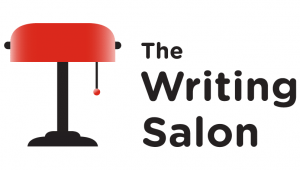How has your training as a marine scientist influenced your writing?
The language of our oceans, lands, and air has long informed my writing. Marine science unlocked the world – gave names to the array of life and its building blocks, revealed new words I had never heard, like “nudibranch,” “tardigrade,” and “epifauna.” It was a pathway, one constantly meandering while forging forward, to learn about life on its own terms. In poems, I seek to better grasp life, my place in it and responsibility to it, even if I can only hold it for a second or watch it closely as it flashes by.
How has your experience in our classes and services program helped you grow as a writer?
Over the years, I have taken a wide variety of workshops and classes. What was special about The Writing Salon is I also felt part of a community. I took a number of classes and workshops there with different teachers on everything from craft elements to ways to improve one’s writing practice to feedback workshops. The number of options kept me coming back, and I got to know those teachers and other writers also taking classes. That provided me feedback and advice I could never hope for from one-off classes here or there, and allowed me to form writing relationships with others. That is important in a person’s writing life, especially given the fact that writing is such a solitary activity.
Based on your own experience applying to MFA programs, what advice would you give to writers who are interested in pursuing an MFA?
I say write down what you consider important before even applying. For me I felt I needed to achieve a level of self-awareness about my own writing, a strong sense of my own creative powers. It was at that point I knew I had hit the limits of where individual classes and workshops could push me. And I’m much better at fielding feedback. I’ve never been thin-skinned, it’s more I didn’t always know how to use it. Then I would say grant yourself the time and space to find the right program for you. There are many great options – but they differ in curricula, mentors, and in culture. You owe yourself the chance to get a sense of those aspects.
Congratulations on enrolling in the MFA Program for Writers at Warren Wilson College! What are you looking forward to most in the MFA Program?
All of it. Two things stood out about Warren Wilson for me. First, the rigorous course of study that equally balances analysis and working on my own writing. I really want that because I think strengthening my knowledge of craft and poetic histories will enhance and challenge my creativity. Second, Warren Wilson has a strong sense of community, both among current students and alumni. I am so excited to join that. This sounds a little dramatic, but I know my life is about to change drastically in that for whatever ups and downs I inevitably experience in the program, I know it is going to open a whole new writing world to me. I can’t wait.

Emily Knight is a marine scientist and manager for the Lenfest Ocean Program, a grant-making program with the Pew Charitable Trusts that links ocean and coastal science with management and policy. She holds a master’s degree in oceanography from the University of Maine. Emily has been writing and reading poetry for over twenty years and was most recently published in Thimble Literary Magazine. You can find her deep in Shenandoah National Park, on Mono Pass in the Sierra, or Point Reyes National Seashore… one of those three.

Emily Knight is a marine scientist and manager for the Lenfest Ocean Program, a grant-making program with the Pew Charitable Trusts that links ocean and coastal science with management and policy. She holds a master’s degree in oceanography from the University of Maine. Emily has been writing and reading poetry for over twenty years and was most recently published in Thimble Literary Magazine. You can find her deep in Shenandoah National Park, on Mono Pass in the Sierra, or Point Reyes National Seashore… one of those three.
